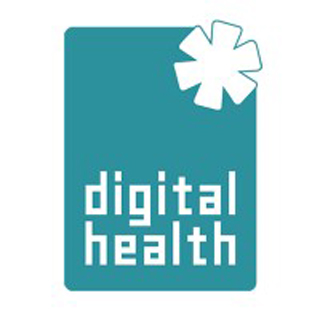

Digital Healthcare Solutions has partnered with USAID’s MaMoni Maternal and Newborn Care Strengthening Project: Emergency Response to COVID-19 Pandemic implemented by Save the Children in association with factories under BGMEA and BEPZA. The initiative has served 150,000 marginalized people of Bangladesh, including the RMG workers and slum dwellers of Dhaka, Gazipur, Narayanganj and Narsingdi with quality healthcare services. Digital Healthcare Solutions is a programme of Grameen Telecom Trust.
Since its launch on February 1, the program has reached over 140,000 RMG workers and 10,000 slum dwellers with the free Surokkhito package, where patients received nearly Tk 639,000 so far as financial aid through the Free Health Cashback offers under this package. Apart from this, over 12,500+ people took a consultation from General Physician and 800+ Specialist consultations have been conducted.
In addition, 43 day-long health camps with MBBS doctors were organized at apparel factories and slums, allowing 4990+ residents of the surrounding areas to directly speak with doctors about a variety of health-related concerns. Of these residents, the majority, 2850+ of them were women. 149,000 masks were also distributed to slum dwellers & RMG workers.
RMG workers of these selected factories availed the consultation from specialized doctors of Skin diseases, Mental health, Female & Child health, for themselves and their families via video calls, completely free of cost. The most common concerns were Dermatology and Gynaecology related issues since many underprivileged people often ignore these types of health issues due to lack of awareness and social taboos and discrimination against women.
The tech-driven healthcare platform aspires to provide high-quality services to all as it believes, everyone has the right to quality healthcare services, a basic necessity for humankind.
Officials mentioned that distant medical support or telemedicine has emerged as an opportunity to reach affordable care to all as the corona pandemic has unearthed the reality of traditional health services in the country as elsewhere in the world. With the implementation of regular lockdowns as the new norm, access to healthcare services has become quite difficult and also risky due to the sudden rise in COVID-19 cases. However, at the same time, the demand for healthcare has only increased tenfold.
The vulnerable population like RMG workers or slum dwellers already face many obstacles with access to quality healthcare being one of the major ones. With their income being heavily dependent on their daily earnings, health issues can have a major hit on their quality of living standard if they miss work due to sickness. Therefore, access to healthcare services that can be availed easily via phone calls or an app can greatly aid them.
With the RMG industry accounting for around 83 percent of Bangladesh’s total exports and employing nearly 4 million people, RMG employees are the backbone of Bangladesh’s economy, producing over 32 billion US dollars annually and playing a major role in helping Bangladesh become a middle-income country.
However, the RMG industry in Bangladesh has taken a huge hit as a result of the corona pandemic’s onslaught. Due to the losses incurred as a result of the factories closing because of canceled orders, employers were forced to lay off workers and/or stop paying wages. RMG workers have suffered even more with limited access to healthcare, with a quarter of them already living in poverty.
With over 60 percent of RMG workers being women, lack of healthcare service access now combined with lower income, worsen maternal and child health, lead to babies with lower birth weight, apart from many other issues.
Therefore, free specialist consultations, particularly with Gynecologists and Pediatricians can make a big difference by ensuring quick and reliable care, impacting their ability to work and generate income and contribute to the national economy.
The advent of the coronavirus has demonstrated the importance of providing adequate health care to apparel workers in order to preserve the economy in the midst of a pandemic, according to DH Chief Commercial Officer Andrew Smith.
“The pandemic caused major economic and social impacts, with billions of dollars of orders paused in last calendar year, and hundreds of thousands of women unable to earn, and afraid to go to healthcare facilities due to the virus. From the sudden rises in the infection rates this year, we can assume, COVID-19 is here to stay for some more time. Therefore, access to remote healthcare services can be a pioneer in helping the government control the transmission of COVID and manage the existing caseload.”, he said.
Tamanna Yasmin, a garment worker in Gazipur, mentioned to DH about her experience, adding that the doctors very diligently listened to her problems about her pregnancy and gave her advice on how to keep the baby healthy.
“I also received a Free Health Cashback worth of Tk 4,000 from Digital Hospital once my baby was born,” she said.
MaMoni project chief of the party Dr. Umme Salma Jahan Meena stated that “The corona pandemic has had a detrimental influence on women’s health in hard-to-reach regions, particularly among RMG factory employees.”
“Equally, additional costs incurred when someone is affected by coronavirus also takes a toll on their already impacted financial situation. By introducing micro health schemes and online doctors’ consultation services, we hope to make healthcare services accessible and affordable for all,” Dr. Salma added.
The DH services are available over the phone at 08000111000 (toll-free), weblink at digitalhospital.health or via the Digital Hospital app.

